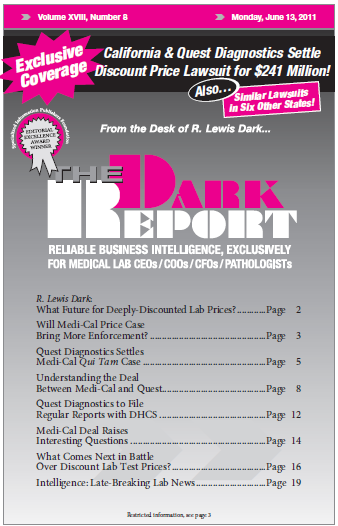CEO SUMMARY: Pathologists, clinical lab executives, and lawyers in California are going to find some surprises when they study the “Settlement Agreement and Release” that was recently signed by the California Attorney General and Quest Diagnostics Incorporated. Quest Diagnostics has indeed agreed to pay $241 million to resolve the allegations in the whistleblower lawsuit. But …
Quest Diagnostics to File Regular Reports with DHCS Read More »
To access this post, you must purchase The Dark Report.


